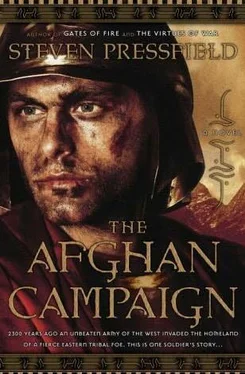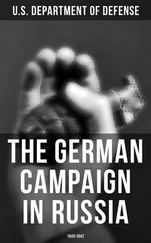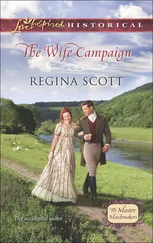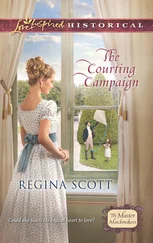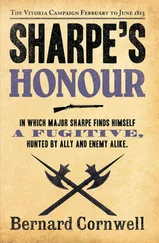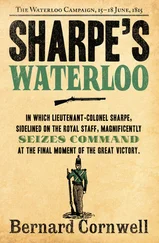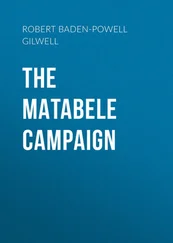Steven Pressfield - The Afgan Campaign
Здесь есть возможность читать онлайн «Steven Pressfield - The Afgan Campaign» весь текст электронной книги совершенно бесплатно (целиком полную версию без сокращений). В некоторых случаях можно слушать аудио, скачать через торрент в формате fb2 и присутствует краткое содержание. Жанр: Исторические приключения, на английском языке. Описание произведения, (предисловие) а так же отзывы посетителей доступны на портале библиотеки ЛибКат.
- Название:The Afgan Campaign
- Автор:
- Жанр:
- Год:неизвестен
- ISBN:нет данных
- Рейтинг книги:4 / 5. Голосов: 1
-
Избранное:Добавить в избранное
- Отзывы:
-
Ваша оценка:
- 80
- 1
- 2
- 3
- 4
- 5
The Afgan Campaign: краткое содержание, описание и аннотация
Предлагаем к чтению аннотацию, описание, краткое содержание или предисловие (зависит от того, что написал сам автор книги «The Afgan Campaign»). Если вы не нашли необходимую информацию о книге — напишите в комментариях, мы постараемся отыскать её.
The Afgan Campaign — читать онлайн бесплатно полную книгу (весь текст) целиком
Ниже представлен текст книги, разбитый по страницам. Система сохранения места последней прочитанной страницы, позволяет с удобством читать онлайн бесплатно книгу «The Afgan Campaign», без необходимости каждый раз заново искать на чём Вы остановились. Поставьте закладку, и сможете в любой момент перейти на страницу, на которой закончили чтение.
Интервал:
Закладка:
Flag and I ride out to the Afghan camp. The time is an hour before sunset. Ash is supposed to meet us, to serve as escort and guarantor. He’s nowhere to be found. We grab one of our shikaris instead, a grizzled mountaineer named Jerezrah, to present our dashar, our request for admittance. Alas, the fellow turns out to be of the Agheila, one of the Panjshiri tribes with whom our hosts, who are Pactyans as well but of another order, are at war. They won’t let him in. Now Ash appears. He has been waiting all along, it seems, wondering what is keeping Flag and me. He takes over. Appealing to the spirit of the Days of Forgiveness, he convinces our hosts to permit entry to Jerezrah. Only now Jerezrah’s chapped at the insult and won’t go in. “I have known these bandits all my life,” he says, turning on his heel. “They are as dirty and disreputable as ever.”
Flag, Ash, and I enter the camp. It seems that every rock-hopper for a hundred miles has got noise of the event, and they have congregated eagerly to attend it. They’re a savage-looking pack, armed to the eyeballs, unbarbered for months. Every man carries an elaborately fringed and feathered quirt, whose whip-end he sets before him on the earth when he sits, holding the butt lightly between his fingers, so that when the whole assembly has taken up positions in a circle, the riding-crops all point to the center and all jiggle rhythmically, tapping on the dirt. The spectacle is colorful and, in its way, quite charming.
The mob has now formed up before the chief’s pavilion, a goatskin structure supported by multiple timber columns and fronted by an enormous tent portico, whose entry is carpeted with rugs laid on the earth. We are shown our place. We sit. The sun slips behind the mountains; at once the night air stings with cold. Ash folds his knees on my right. Chiefs and elders sit directly across from us, with Shinar’s brother and cousins standing behind them. No greetings are exchanged, nor is the least notice taken of our arrival. This is customary, says Ash. It is called the “settling in,” when the parties acquaint themselves in stages, by their mutual presence, without direct speech.
The circle buzzes with social jabber. Everyone chatters except Flag and me. Now great brass bowls of water are brought, not to drink but to wash our right hands in. An excited yipping ascends. At once a mound of rice, mutton, and peas appears, trucked in on a four-handled barrow. Everyone digs in. Flag and I do, too, fearing to offer offense if we demur, even though we’ve just bolted a gutbusting supper back at camp. The brother and cousins do not sit. They don’t eat. They maintain their posts immediately behind the headman. I have no idea what this means. Their demeanor is sullen and combative; they stand with arms folded. When the mountain of rice has been devoured, which takes no more than ten minutes, the men begin debating, in Pactyan, the issue of Shinar and her violation of the code of A’shaara. No one invites me or Flag to speak, nor even glances in our direction. The chief and elders keep up a dialogue of their own of abundant mirth, apparently having nothing to do with our case. Passion animates the debate; at one point several clansmen have to be separated, nearly coming to blows. All hands are having a wonderful time.
Suddenly, as if by some signal that everyone can hear except Flag and me, all palaver ceases. Brother and cousins are called forward. They sit, facing me. “Toumah!” bawls an interpreter. “Speak.”
I do. I address the brother and cousin.
“Nah! Nah!”
The master of ceremonies corrects me. I’m supposed to plead my brief to the elders.
I make my case in Greek, with Ash translating. When I finish, a second round of debate begins. Again the headmen pay no attention. Several actually get up and leave, to relieve themselves I assume, returning to resume their animated converse. The period ends. Now Shinar’s brother Baz gets up to speak.
I would feel better if he were more angry. Instead, his manner is flinty and dour. He addresses the elders and the tribe, not me. When he gestures in my direction, which he does infrequently, his voice rises in register. I understand enough Pactyan to reckon that he hates me less as an individual, or for any injury I have personally inflicted upon him, than as a representative of the corps of Macedon, the detested invader. I am to him all aliens, all Macks. He hates us with a crimson passion.
Ash speaks into my ear. “Don’t take this too seriously. The man is good.”
Baz finishes his harangue to the elders and the tribe. Now he turns to me. In terms of cold and stony truculence, he reads out an indictment that would blanch the mane of Zeus. I make out three words from their repetition: “honor,” “insult,” and “justice.”
The brother finishes.
“Now,” prompts Ash, “offer money.”
Start low, he advises. I do. It’s not working. I ante nearly half my total bonus, three years’ pay. I’m getting nowhere.
“I add,” I say, “my horse.”
The congress erupts. Quirts jiggle exuberantly. Tribesmen rap each other with the backs of their right hands (to use the palm, or the left, would constitute a mortal insult). By magic my mare materializes, led by Afghan grooms. The throng surrounds her, five deep. Give these bandits their due; they know horses. From their animated jabbering, it is clear that Snow meets with their approval. I glance to Baz and the cousins. Clansmen are swatting them merrily. It looks good, Flag says. “These sheep-stealers are showing your boy respect.”
He’s right. Men continue congratulating Baz. Certainly no stain of dishonor remains in their eyes.
Offering my horse proves a brilliant stroke. Greedy as the Afghan is, gold holds less appeal for him (since he has so few opportunities to spend it) than articles of honor, such as the armor or weapons of an enemy, and more so his warhorse, particularly if that animal is a superb specimen like Snow in the prime of her fighting years. To acquire such a prize is almost as satisfying as murdering the foe himself.
“Have we got a deal?” I ask Ash.
Indeed, says he. Except for another hour of haggling over bridle and tack. Ash has taken over; he negotiates for me. “Give them everything,” I say. “Who cares?”
“Never! They will despise you and the animal if we don’t fight for this.”
In the end, Ash preserves my armor and weapons.
Now comes a second meal.
“Ash,” says Flag. “Get us the fuck out of here.”
The deal is struck. Shinar’s brother will give up his claim to vengeance under the laws of tor and A’shaara. I will recompense him with my horse and the agreed-upon indemnity.
I want to get this over with. But the amount I’ve pledged is too big to deliver in gold (I don’t have a tenth of it anyway). It will have to be an army draft, and acquiring that will take all night and most of tomorrow, if I’m lucky, to procure through the Quartermaster.
We’ll meet, the brother and I agree, tomorrow at the gate of the Pactyan camp, an hour before the military parade forms up.
Baz does not give me his hand on our understanding; that office is performed by the chief, according to custom. “Good deal!” says the old man in Greek.
I meet the brother’s eye. “Will this stand with you?”
“Bring the money and the horse.”
“If our nations can make peace, surely you and I can.”
Still Baz will not acknowledge.
“Leave my country,” says he. “Never come back.”
54
Ash adds one caution as we ride out: I must make absolutely certain, when I deliver them, that the brother takes the money and the horse into his hands. “Once he accepts the bridle, he cannot go back on his oath. Until then, you have nothing but air.”
Читать дальшеИнтервал:
Закладка:
Похожие книги на «The Afgan Campaign»
Представляем Вашему вниманию похожие книги на «The Afgan Campaign» списком для выбора. Мы отобрали схожую по названию и смыслу литературу в надежде предоставить читателям больше вариантов отыскать новые, интересные, ещё непрочитанные произведения.
Обсуждение, отзывы о книге «The Afgan Campaign» и просто собственные мнения читателей. Оставьте ваши комментарии, напишите, что Вы думаете о произведении, его смысле или главных героях. Укажите что конкретно понравилось, а что нет, и почему Вы так считаете.
